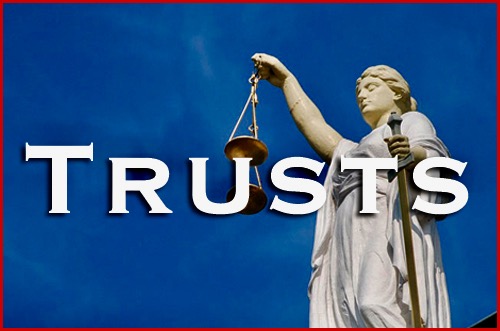There are many cases where the actions, or inactions of the executor/trustee amount to conduct that will disentitle any executors remuneration.
Executor is Fidicuiary
It is trite law that an estate executor/trustee has a fiduciary duty to act in the best interests of an estate and its beneficiaries, and in that regard, whether a professional or non-professional, an estate trustee must exercise the standard of care employed by a person of ordinary prudence in managing his or her own affairs. Fales v Canada Permanent Trust Co. (1977) 2 SCR 302 at paragraph 315.
An executor being a fiduciary in relation to the beneficiaries, cannot deal with the estate in a manner that is adverse to their interests. Cowper-Smith v Morgan 2017 SCC 61 at paragraph 41.
Throughout this article when I refer to executor remuneration, I also include fees for the dual role of being trustee of the estate- the title could read executor/trustee remuneration.
S.88 Trustee Act
Section 88 of the Trustee Act governs executor’s remuneration. The executor is entitled to:
a) a maximum of 5% of the gross aggregate value of the estate;
b) a maximum of 5% of the income earned during the administration of the estate; and
c) an annual care and management fee of 0.4% of the average market value of the assets.
This statutory provision will prevail unless a contrary statement is contained in the will.
The law is clear however that the percentages stipulated in S. 88 Trustee Act are not necessarily to be applied in every calculation of remuneration. The percentages provide a rough guide to assist in appropriate computation of the executor’s remuneration.
In the end, the court must be satisfied that the compensation claimed ”bears some reasonable relationship to the work and responsibility involved.” Re La Chance (1955) 15 WWR 141 BCSC.
Factors to Consider When Assessing Executor’s Fees
The various factors to be considered when determining the appropriate executor’ s fee as per Re McColl Estate (1967) 65 WWR 110 BCSC include:
a) The magnitude of the estate;
b) the care and responsibility involved;
c) the time occupied in the administration, the skill and ability displayed;
d) the success (or lack thereof) achieved in the administration
If the estate suffers any losses as a result of an executor’s action, or inaction, the executor is obliged to repay the estate, with interest. The interest is calculated pursuant to the Court Order Interest act, RSBC 1996, unless there is a finding that the executor has used estate monies for his or her own benefit. In that circumstance, the executor may be required to pay compound interest. See Waters Law of Trusts in Canada, third edition. at paragraphs 1228 – 1229
When the Executor Gets No Fees
Where an executor’s compensation is reduced or denied, this is done not for the purpose of imposing a penalty on him or her for committing a breach of trust, but on the ground that he or she has not properly performed the services for which compensation is given.
There are several examples of situations found in the case law where the executor has been awarded no executor fees whatsoever:
A Long Running Botchup
In the estate of Lillian Lai Lien Lowe 2002 BC SC 1813 the executor was a lawyer and after a hearing before the registrar as to what fees she was entitled to for acting as executor, the registrar recommended $500.
The matter was appealed to the Supreme Court and the Registrar’s decision was reversed, and the executor was denied any fee.
The beneficiaries presented an extensive list of criticisms that demonstrated that the executor failed to administer the assets of the estate properly and in a timely manner, including everything from unacceptable delays, to an improper accounting, to refusing to produce backup documentation, and ultimately charging the maximum 5% on top of her unacceptable conduct.
The court found that all of the criticisms were legitimate and that there was ample reason to apply a substantial reduction to the executor’s fee that she claimed. The reduction was from the % 5 claimed to %0.
None of Your Business
The court denied the executor any fees in Robillard v Robillard Estate 2015 BCSC 1417 where as a result of the court finding that he failed to administer the will in accordance with the law, and failed to also account , even testifying under cross-examination that he felt that his actions as executor of his mother’s estate were his personal business and had nothing to do with anyone else. He refused to produce relevant documents. During the course of litigation, and his conduct throughout raised what is often referred to in an allegation of breach of fiduciary duty, as carrying with it the “stench of dishonesty”.
The court found that the executor conducted himself secretively and misleadingly, such as not providing his sister with notice of application for probate, and having no receipts records or accountings , so that it was impossible to conclude what funds were used for the benefit of his mother and what funds were for his own use.
The court found that the executor conducted himself contrary to his obligations as executor and trustee, both before and after his mother’s death, treating the deceased’s bank account as substantially his own.
Unresolved Conflict of Interest
In Valencia v Yaghdjian 1996 CanLII 8536 BCSC the court denied the executor any fee for gross dereliction of duty over a period of 10 years.
The executor of the estate was an old friend of the deceased. He was also jointly with his wife under an Agreement For Sale of land with the deceased. The agreement for sale represented a significant estate asset.
On the face of it his dual capacity represented no conflict of interest or any particular problem, so long as he simply made the payments specified by the agreement for sale.
However at a fairly early stage, it became apparent that it might be mutually advantageous to commute the agreement for sale, which he did.
This immediately raised the question of conflict of interest, insofar as it was in his personal interest to keep the commuted payment as low as possible, contrasting with it was his duty as executor, to obtain the best possible price for the estate asset. For nearly 10 years this problem and apparent conflict of interest remained unresolved.
The court found this ongoing conflict of interest that had been ongoing for so many years was a gross dereliction of duty to the extent that no executor fees were allowed.
Helping Yourself
In Aragona v Aragona 2012 ONSC 1495 , the court was “shocked” by the conduct of the executor who had literally helped himself to many thousands of dollars from his mother’s estate, at a time when she had Alzheimer’s disease and was unable to look after her own affairs. He treated the money in the estate as if it was his own.
The court denied him any compensation on the basis that as guardian of the property he had adversely affected the estate. He had helped himself to large amounts of money, and the investment account had been reduced to a fraction of its original size, with no convincing explanation.
The court followed the decision of Zimmerman v McMichael estate 2010 where no compensation was awarded as significant amounts of money had disappeared from the estate without adequate explanation.
Conclusion
The amount of executor remuneration unless specifically stated to be a certain amount in the will, is subject to review by the courts when a beneficiary may demand that the executor pass his or her accounts.
As previously discussed executors sometimes have a sense of entitlement both before and after death, and in such situations , as well as others, there are court decisions as precedents where the executor is awarded no compensation. This will particularly be the case if the estate assets were endangered or suffered actual harm.
Given an increasingly aging and wealthy population, the vulnerability of the elderly and incapable when taken against the greed of some executors and trustees will undoubtedly result in more judicial interpretation on the issue of remuneration of executors and trustees, including when it might be improper to award anything.


